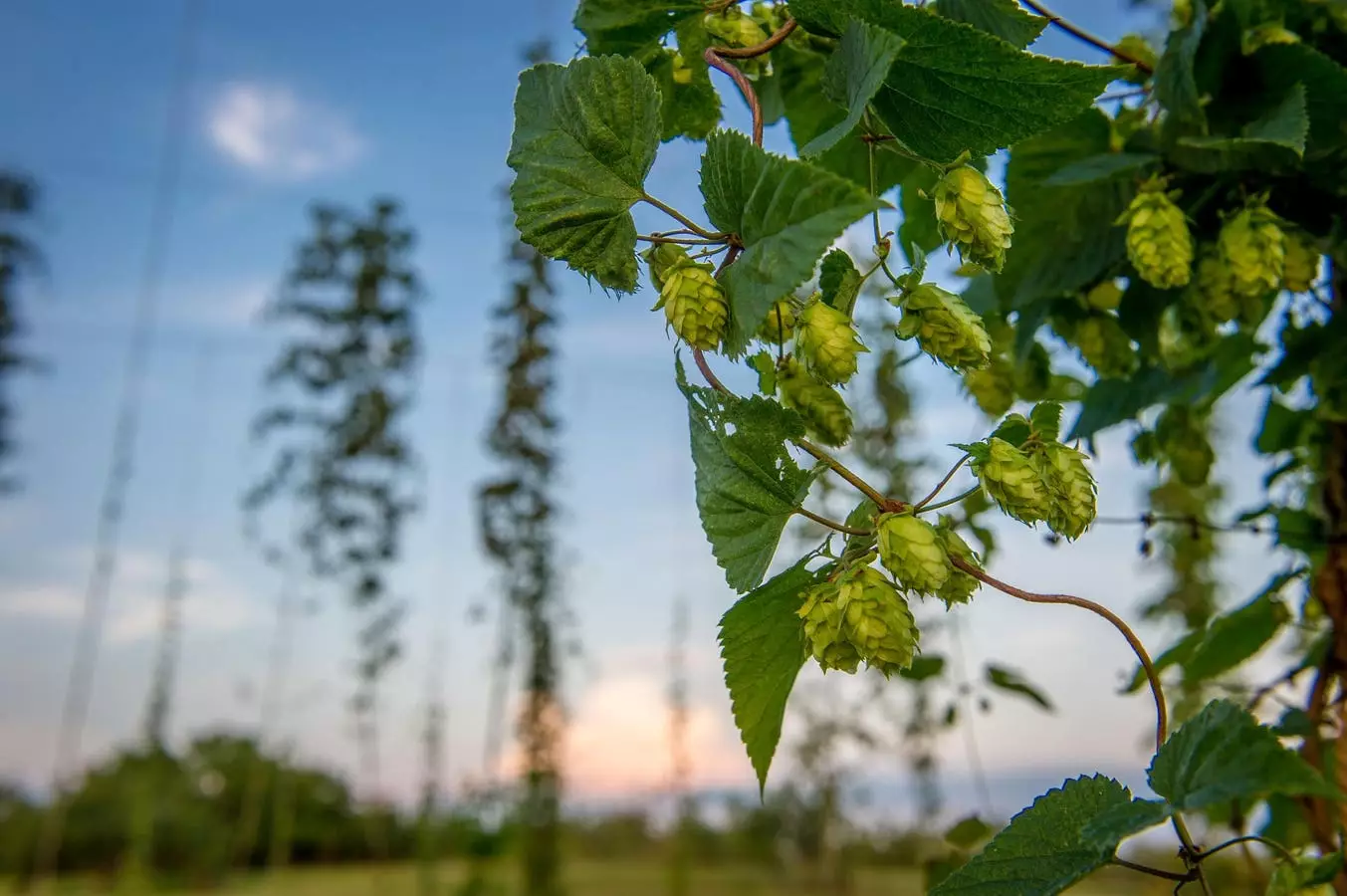The United States hop acreage set for harvest in 2024 has decreased by a significant 18 percent from the previous year, based on data from the United States Department of Agriculture. This decline comes at a time when the beer industry has been experiencing a downturn, raising concerns about the future of hops supply. Shanleigh Thomson, a veteran in the beverage alcohol industry and head of west coast sales for Roy Farms, a prominent hop grower, has noted that there has been a surplus of hops inventory since 2016.
Prior to 2016, there was actually a shortage of hops due to the rapid growth of craft beer. This shortage prompted breweries to enter into purchasing contracts for popular hop varieties like Citra and Mosaic. Many breweries over-contracted as they anticipated continuous growth, leading to an oversupply of hops in subsequent years. Despite the saturation in the market, farmers were hesitant to reduce acreage as it takes up to three years for hops to fully mature and produce cones suitable for brewing.
The reduction in hops acreage in 2024 is particularly detrimental to small farmers who had contracted with major suppliers to grow hops. These farmers had invested in specialized equipment for hop cultivation, which cannot be easily repurposed for other crops. With the decrease in demand for hops, these farmers are now left with limited options for utilizing their equipment and land effectively.
Thomson predicts that there may be significant changes in how hops are supplied in the coming years. Farmers who previously worked with brokers may now seek direct supply contracts with brewers, bypassing traditional channels. There may also be a shift towards public hop varieties such as Cascade and Centennial, which offer more control to the farmers. These changes signal a potential shake-up in the established norms of the hops industry.
The challenges currently facing the United States hop industry in 2024 point to a need for adaptation and innovation. With a surplus of hops supply and a stagnant beer market, farmers and suppliers must strategize for sustainable growth in the future. By diversifying their offerings, exploring alternative markets, and building direct relationships with brewers, the hop industry can navigate through these turbulent times and emerge stronger on the other side.

